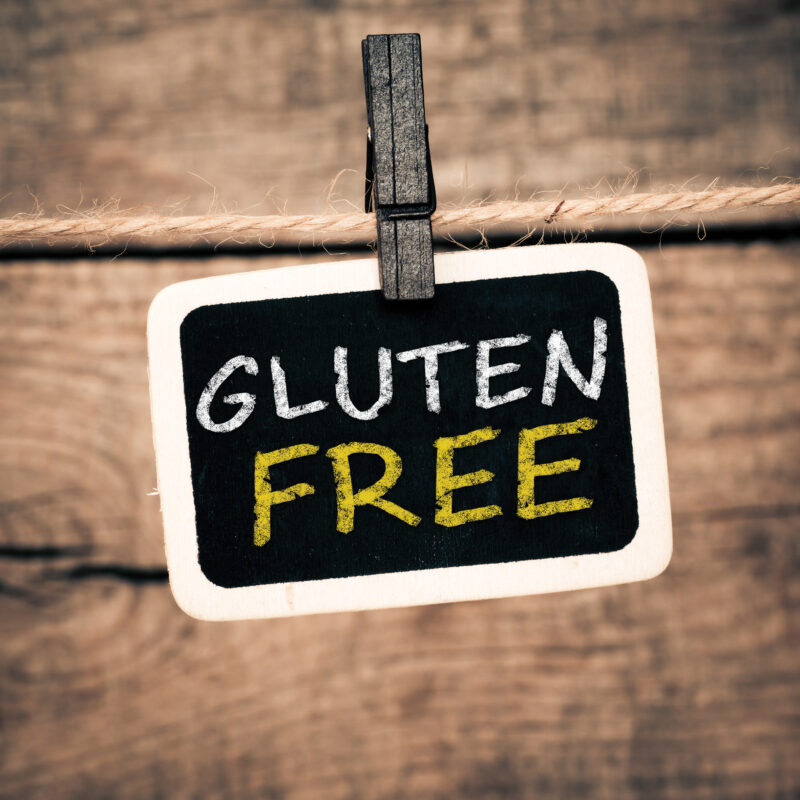Do you suffer from abdominal bloating, low energy, anaemia and red rashes? You may be sensitive to gluten, a protein that hides in foods as innocuous as a slice of bread. Look for the symptoms, get a correct diagnosis and adopt a gluten-free lifestyle, suggests Dr. Parul R. Sheth
In recent times, much is being spoken about the ill-effects of gluten. More people are following gluten-free diets and, the world over; a good number of restaurants are offering gluten-free menus, which are the current rage. Celebrities like Gwyneth Paltrow, Rachel Weisz and Victoria Beckham are committed to following a gluten-free lifestyle, which has been touted to enhance energy levels, trim thighs and reduce abdominal fat. Tennis player and this year’s Wimbledon champion, Novak Djokovic credits his gluten-free diet for his improvement in form. Bradley Wiggins, British professional road and track racing cyclist attributes his nine-kilo weight loss to a gluten-free diet. Yet, there is no scientific evidence to prove that a gluten-free diet can cause weight loss.
Get to know gluten
What is gluten? Why are people running away from it? When is the time to cut down on it? Does cutting out gluten help or hurt your body? With so much confusion even in the minds of those who have jumped onto the gluten-free bandwagon, it’s time to unravel the truth about it.
Gluten is a protein found in foods such as cereal grains, all forms of wheat, barley, rye, etc. It has no special nutritional benefits but it makes your food more interesting. It gives bread and baked products its structure and spongy texture, makes the pizza dough stretchy and helps thicken soups and sauces. Glucose intolerance occurs when your body cannot tolerate the gluten found in foods. The protein causes an autoimmune response in the body, which damages the lining of the small intestine—the villi, the tiny finger-like small projections inside the small intestine. This occurs mostly in celiac disease, sprue or gluten-sensitive enteropathy.
What is Celiac disease?
Gluten intolerance suggests the presence of celiac disease, a not so common chronic digestive disorder. It can be diagnosed with blood tests, genetic tests or a biopsy of the small intestine. You may not be aware that you have celiac disease or gluten intolerance. On the other hand, you may be consuming a gluten-free diet even though you have never been diagnosed with celiac disease. Scientists attribute the increase in the number of people diagnosed with celiac disease to the high consumption of processed wheat products such as pastas and baked foods that have high gluten content. Gluten is a true evil for people with celiac disease. Even a tiny crumb can cause an immune reaction creating antibodies that damage the small intestine resulting in inflammation, gastrointestinal distress and nutritional deficiencies. The only remedy for celiac disease is eating gluten-free food. Untreated celiac disease can lead to complications such as infertility, intestinal cancers and osteoporosis.
Facts about gluten sensitivity
The term gluten sensitivity suggests celiac symptoms like bloating, abdominal cramps, skin rashes, etc. These can be managed by cutting back on gluten-containing foods. Not everyone with these symptoms actually has celiac disease. But, experts believe that the number of non-celiac gluten-sensitive people is very small. Symptoms of gluten intolerance are similar to other health problems such as irritable bowel syndrome or Crohn’s disease. Gluten intolerance can cause dermatitis herepetiformis, an immune disorder. Gluten ingestion releases antibodies, which then get deposited under the skin causing redness and watery and itchy blisters on the skin. When too many villi in the small intestine, which are essential for nutrient absorption, are damaged, malnourishment occurs resulting in lack of energy. In case of long-standing undiagnosed celiac disease, due to lack of calcium absorption, you may end up with thin bones, osteoporosis, joint problems and arthritis. Also, because the muscles and nerves get affected, you may suffer from muscle pain and tingling and numbness of the hands or feet.

Tips to be gluten-free
Foods containing gluten are bad for all those having gluten sensitivity, gluten intolerance or celiac disease. Eating a gluten-free diet can ease the symptoms but following a gluten-free diet can be vexing. It takes time to get used to gluten-free foods. You can find them in speciality grocery stores. Many types of gluten-free foods are commercially available and the substitutes available for gluten-containing foods are tasty as well. While shopping at the grocery store or eating out, be sure to check the labels or feel free to ask whether the foods are gluten-free. You may want to check about foods like beer, breads, bakery products such as cakes, pies, candies, cereals minus the wheat, oats, cookies, crackers, croutons in soups, French fries, sauces, gravies, etc. Be careful when you eat oats; they may be contaminated with wheat at the time of production. Avoid eating imitation seafood, textured vegetable protein as in vegetable burgers, soya hot dogs and beer laced with gluten. Look out for dextrin on the food labels because dextrin can be made from wheat. Food additives too may be contaminated with gluten. Gluten contamination can come from used vessels and toasters too. It is important to check medicine labels too, as the medicines may contain gluten. Beware of lipsticks and toothpastes, which can contain gluten.

Is it good to go gluten-free?
Eating a strictly gluten-free diet can help get rid of the symptoms of gluten-sensitivity and gluten intolerance and stop the complications of celiac disease. However, the downside is that you may have low levels of certain vitamins and nutrients due to the absence of gluten-containing grains in your diet. Check with your nutritionist or doctor whether you are getting enough of iron, folic acid, calcium, fibre, vitamins, vitamin B6, and vitamin B12 in particular. It is misleading to think that you lose weight if you eat gluten-free food. The fact is, when you eat gluten-free packaged products, you may be adding on more calories since these foods are high in saturated fat, sugar and sodium. Also, these foods may contain unhealthy refined flour or starches that can affect your blood sugar.
Stop fearing gluten
While you need to be aware of gluten, you need not be afraid of it. Remember, if you are gluten sensitive, it does not mean that you have to lead a gluten-free life. Your doctor may advise you to stay away from gluten for some time and then slowly reintroduce gluten back to know your body’s response to it and gauge your gluten threshold. But, if you have celiac disease, you need to refrain from eating gluten completely to be healthy and symptom-free. That is not a difficult solution. You can get used to it slowly and surely.


